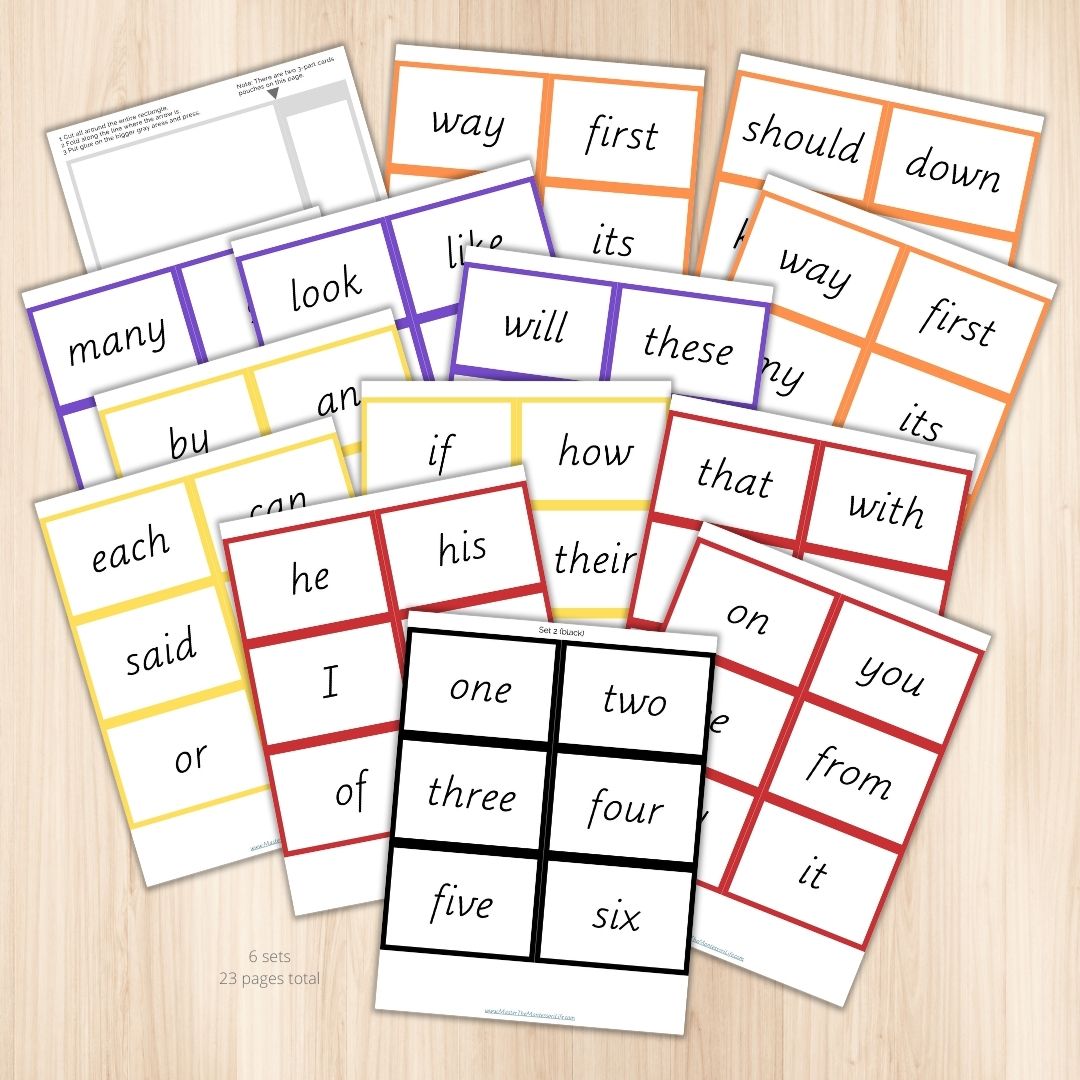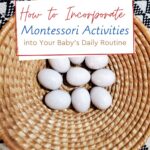Do you know what sight words are? They are words that youngsters must learn to recognize on sight and can be learned from memory. “High frequency words” is another term for “sight words.” Teaching sight words is a crucial aspect of early literacy, according to the Montessori method. This article will describe how parents and teachers can use the Montessori technique to effectively and engagingly teach high frequency words.
Watch and listen to LIVE training here:
Why Use the Montessori Method to Teach Sight Words?
The Montessori method is a hands-on, child-centered approach to learning. The Montessori technique, rather than lecturing or drilling children on high frequency words, enables youngsters to explore and discover new material at their own pace. Independent exploration has been shown to be more successful than typical teaching approaches.
High frequency words are the foundation for teaching young children to read. However, teaching sight words can be challenging and time intensive. As a result, many parents and teachers prefer Montessori methods for teaching sight words.
The Montessori method is based on the premise that a child should be able to learn from his or her surroundings. This includes using tangible things to represent words, such as cards and objects. Montessori methods also place a strong emphasis on repetition and practice.

Montessori Language Arts Sight Words Sets, Envelopes + Lesson Plan
$2.99
There is a great way for childen to learn Montessori Language Arts sight words and that is with this 6-set bundle with lesson plan.
There are many things that you can do to help children to read the Montessori way. One of the most important ones is teaching children sight words. In this bundle, you get 6 sets of sight words for children to learn to read. This includes the lesson plan and an envelope template to keep the different card sets.
EU BUYERS, GO HERE.
Is the Montessori Method Right for Your Child?
The Montessori method is an effective way to teach sight words and other reading skills. However, it is important to consider your child’s individual learning styles before switching to this approach. Some children may benefit more from traditional teaching methods like drills and memorization.
No matter which method you decide to use, it is important to create a positive learning environment for your child. Encourage them to take their time and celebrate each success as they learn new words and develop their reading skills. With patience and practice, your child will become a better reader in no time!
#MasterTheMontessoriLifeShow #themontessoriwayfoundationsframework #themontessoriwaypreproom #themontessoriguide #themontessorimethod #themontessoriway #MasterTheMontessoriLife #montessori #montessoriathome #montessoritopics #montessorieducation #themontessorilife #themontessorijourney #themontessoriexperience #montessoripodcast #montessoripodcasts #montessoriprogram #centeredmontessoriguide #normalizedchild #montessoridays #montessorian #montessoriactivity #montessorienvironment #montessoriquestions #montessorihomeschool #montessorikids #montessorimom #montessoriactivities #montessorimaterials
Wardrobe from: http://bit.ly/TNHstitchfix
You might also like:
- Sensitive Periods in Child Development
 These sensitive periods are unique windows of opportunity that help children easily absorb important skills and concepts.
These sensitive periods are unique windows of opportunity that help children easily absorb important skills and concepts. - Montessori Practical Life Step 1 Guide
 Montessori Practical Life Step 1 Checklists The Easy Way to Keep Your Montessori Journey Organized: Discover an affordable, printable checklist set that helps you organize lessons, track progress, and ensure Practical Life success for every child.
Montessori Practical Life Step 1 Checklists The Easy Way to Keep Your Montessori Journey Organized: Discover an affordable, printable checklist set that helps you organize lessons, track progress, and ensure Practical Life success for every child. - How to Incorporate Montessori Activities into Your Baby’s Daily Routine
 Well, let me get started by telling you that it isn’t just incorporating it into your baby’s daily routine… you need to make it a part of your own as well!
Well, let me get started by telling you that it isn’t just incorporating it into your baby’s daily routine… you need to make it a part of your own as well! - Montessori Culture: Transportation on Land
 One of the most exciting areas in the Montessori curriculum is the study of transportation on land.
One of the most exciting areas in the Montessori curriculum is the study of transportation on land. - Step by Step Curriculum of Montessori Education
 As a parent and Montessori Guide, I know that you are here looking for some guidance in Montessori education.
As a parent and Montessori Guide, I know that you are here looking for some guidance in Montessori education. - Hands-on learning made easy with the Montessori Pledge of Allegiance lesson
 Teaching children the importance and meaning behind the Pledge of Allegiance can be a meaningful addition to any Montessori or homeschool classroom—but where do you start?
Teaching children the importance and meaning behind the Pledge of Allegiance can be a meaningful addition to any Montessori or homeschool classroom—but where do you start?


Leave a Reply